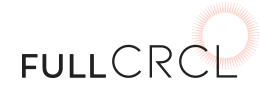#IntuitiveRD
Current practice information, credentials and how you got started in nutrition?
I got started in nutrition as a nursing major. I knew I was interested in something in the health field, so luckily, we all had to take an intro nutrition class our first year in nursing school. I immediately knew that's where I wanted to go, so switched into nutrition and never looked back. I've always found food, health, and nutrition fascinating, so it's a great field for me.
I am now a Registered Dietitian Nutritionist and work in an integrative therapy practice with other practitioners (psychotherapy, naturopathy, massage therapy, yoga therapy). I help clients heal their relationships with food and their bodies with all my clients, whether or not they're struggling with eating disorders, disordered eating, digestive concerns, or more. By connecting back to their bodies and making daily nourishing choices that are best for them, clients are able to heal their mindsets and bodies.
I also write weekly on my blog at LaurenFowler.co on topics around intuitive eating, body image, self-care, and health at every size, write ebooks, and do online coaching there.
When were you first exposed to the idea of intuitive eating and what was your reaction?
In college, I did a practicum with a dietitian who introduced the book Intuitive Eating to me. It completely transformed my philosophy around nutrition and switched my focus to weight towards health. It helped change my relationship with food to really wanting to take care of my body and enjoying food over using restrictive rules and deprivation.
To be honest, my first reaction was uncertainty and feeling uncomfortable. It was challenging what I knew and thought about nutrition and food, so I wasn't quite sure at first. When I read the book, it really spoke to a deep part of me that knew this was the path I needed to follow, so I put it into action with myself then years ago, and it's the philosophy I follow with my clients now.
How has the practice of intuitive eating enhanced your personal relationship with food?
It's a daily practice for myself. When I first started practicing intuitive eating, I was actively thinking about my hunger or fullness levels, as well as challenging any feelings of guilt if I thought I ate too much or the 'wrong' food. There's no 'good' or 'bad' foods, anyways.
Now, I'm at a point that it's pretty natural for me, and I choose food based on taste, quality, and nutrition. The choices I make around food vary day to day, as well as seasonally, based on what is nourishing to me at that time. It's an amazing thing to be able to trust my body enough to feed it with care and feel nourished.
How has it enhanced your professional practice and work with clients?
It's such a versatile practice with all my clients. While intuitive eating has to be modified or used carefully with clients with eating disorders, parts of it can be used with everyone. For example, some clients may not be able to hear any cues for hunger from their bodies, but we can work on finding peace with food and challenging different mindsets while using a structured meal plan.
It's wonderful for clients who have been dieting for years, often since they were children or teenagers. It provides a new sense of freedom with food that they never thought was possible before. I also love connecting with other dietitians who use intuitive and mindful eating tools – so fun to chat with like-minded colleagues!
What suggestions do you have for dietetic student who are being trained in a traditional approach but who are aching to incorporate HAES® and intuitive eating work?
Don't be afraid to challenge current ideas, especially around weight, health, and HAES. There's plenty of research around HAES, mindful eating, intuitive eating, and taking a health-focused over weight-focused approach with clients, so share that with clients, preceptors, or professors during your studies or internship.
Seek out your own opportunities to learn more or apply these ideas by finding a rotation with a intuitive eating or HAES-focused dietitian during your internship, writing a blog and connecting with other students or dietitians, or doing your own learning in these areas.
What suggestions do you have for dealing with colleagues who are not trained in the paradigm?
Start by reading Intuitive Eating by Evelyn Tribole and Elyse Resch and Body Respect by Linda Bacon (focused on HAES). These are wonderful starting places to understand the paradigm, see the supporting research, and give you ideas on how to start using it. It's always important to start with you, so practice intuitive eating yourself. Notice what new ideas are challenging for you to accept. I challenge you to practice the new approach, and notice what underlying mindsets about your personal relationship with food or body image are present.
You can connect with Lauren via social media:
Website/Blog: LaurenFowler.co
Facebook: @mindfulmeals
Instragram: @laurenfowlerRDN
Pintrest: @laurenfowlerRDN
Twitter: @laurenfowlerRDN
Thank you so much for sharing your insight, Lauren!

